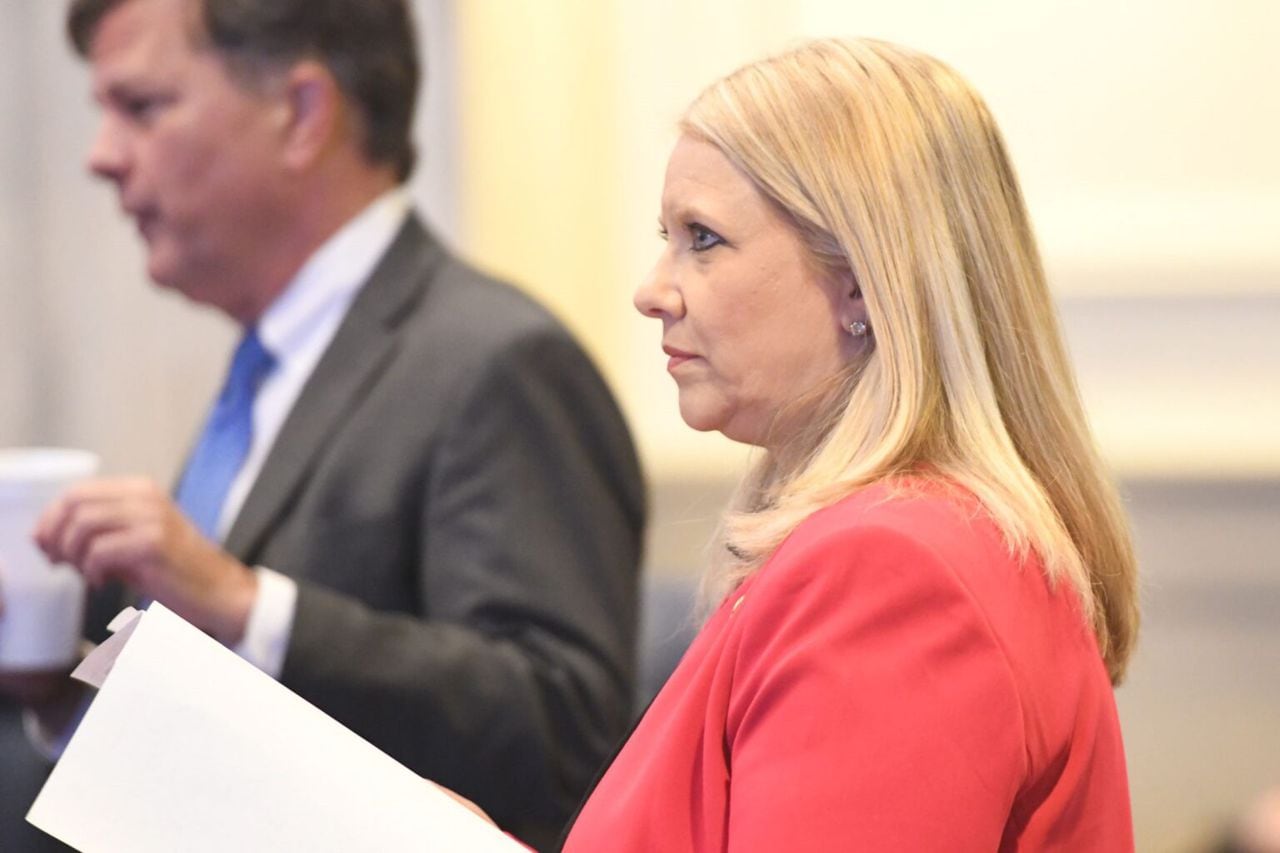Alabama lawmakers want to legally define ‘male’ and ‘female’
Alabama soon could legally define what makes someone a man or a woman.
“We feel that it needs to be defined because not everyone has the same version of the meaning anymore,” said Rep. Susan DuBose, who sponsored HB111 to define sex terms in what she says is the time-honored, traditional way.
Bills in both the state House and Senate seek to define the terms “male,” “female,” “boy”, and “girl” under state law and allow state and local public entities to create single-sex spaces based on those definitions. The bill says that there are only two sexes, and that men and women are equal but not physically the same.
Rep. Dubose said her bill is intended to protect women’s spaces, for example the female-only dorm at the University of Alabama or women’s locker rooms, by restricting them to women who were born with female reproductive cells.
“This bill in and of itself doesn’t change anything. It doesn’t create same sex spaces. People will go to the same bathroom today as tomorrow,” she said.
A female body produces ova, or female reproduction cells, at some point in life, according to the bill, which includes people who would have produced ova if not for a genetic or reproductive anomaly or accident. Males are defined similarly as individuals who at some point produced or would have produced sperm.
“Inconsistencies in court rulings and policy initiatives regarding sex discrimination and common sex-based words have endangered women’s rights and resources and have put the existence of private, single-sex spaces in jeopardy,” the bill states.
The bill states that intersex individuals are not a “third sex,” although people with congenital or medically verifiable differences in sex development must be accommodated under federal disability law, the bill says.
Dubose sponsored a similar bill in 2023, nicknamed the “what is a woman bill” which defined the sexes. She said this year’s bill is simplified and revised to focus on definitions.
Rep. Dubose told AL.com she had help drafting this year’s bill from organizations that have been involved with similar legislation in other states. Those groups include the Independent Women’s Forum, Women’s Independent Voice, Women’s Declaration International USA and Women’s Liberation Front, called WOLF.
“The Women’s Liberation Front was a co-author on the Women’s Bill of Rights with the Independent Women’s Forum. It has passed in Kansas, Oklahoma, Nebraska and Tennessee,” a spokesperson for the group said in an email, adding that the Women’s Bill of Rights is model legislation states can adapt to define the sexes.
In a Senate committee last week, the Senate version of the bill, SB92, sponsor April Weaver told lawmakers the purpose of the bill was to clarify existing law and to protect women.
“I am here today to stand for women’s rights. This bill is the definitional bill for our courts to have guidance when interpreting laws,” she said, before engaging in a back and forth with lawmakers where she clarified her definition of sex and how that differs from gender.
Several members of the public spoke to the committee about the bill.
Alison Montgomery, a transgender woman from District 2 spoke against the legislation.
“This legislation does not make any sense to implement,” she said. “It’ll force (trans) men whose bodies produces ova into women’s spaces. Some of these men have taken testosterone for years and have developed full beards. They do not belong in the women’s bathroom.”
Jordan Price, who goes by the last name Price, told lawmakers that as an androgynous person who is frequently accused of being in the wrong bathroom no matter which one Price is in, enforcement of the legislation is a concern. Price asked whether the perception that someone is in the wrong bathroom would be justification to call the police.
“If you’re sure that you know which bathroom I belong in according to this bill, I’m sure the person sitting next to you is just as sure that I belong in the other one,” Price said.
Ted Challey told the committee he had lived as a transgender woman for 12 years before having a change of heart.
“I’ve done everything you can do. I cut stuff off. I got rid of it, but three years ago, I realized the truth that there only are two genders, male and female,” he said.
Two Democratic senators on the committee spoke out against the bill. Sen. Linda-Coleman said the bill is discriminatory.
“This is just so heartbreaking because we spend all this time trying to keep people down who are not like us. It’s sad. This is a sad day for Alabama,” she said.
Sen. Merika Coleman questioned whether the women’s rights organizations behind the bill are fighting for issues that matter to her as a woman.
“I don’t know how you call yourself a women’s rights organization if you are not fighting for all women,” she said.
